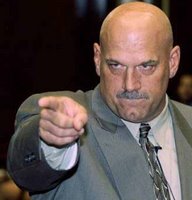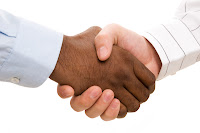 By Paul Dion, STL
By Paul Dion, STLWhat is the symbolism of Jesus being born in a manger?
This is the Christmas Season and of course we have a lot of questions floating around in our heads. I hope that none of you has to figure out how to balance your check book so early in the month.
But because this is a seriously spiritual season, let's consider the story of the Nativity and some of the symbolism that the Gospel Story of Luke holds. I suggest that you find a quiet corner, your favorite "dog-eared" Bible and read the first two chapters of Luke's gospel meditatively.
Luke calls the mother of Jesus, MARY. This name means "Excellence." Or, in the words of the angel Gabriel, "Full of Grace."
The carpenter who saves Mary's honor is called JOSEPH. This means "May Yahweh add."
The mother of John the Baptist is ELIZABETH. This name means "My God is fullness."
His father carries the name ZECHARIAH. This means "Yahweh has remembered."
Finally, the name JESUS means, "God saves." The same as Joshua, the successor of Moses who led the Chosen People of God into the Promised Land, thus saving them from Egyptian slavery for good. Jesus saves us from the slavery of sin.
Amidst all this symbolism we have the symbolism of the 100 mile trip from Nazareth to Bethlehem for the census, three Magi, the three gifts which they brought, the visiting shepherds, the singing angels and the swaddling clothes.
I could bring up a lot more, but that should be enough for now, except for the question:
"WHAT IS THE SYMBOLISM OF JESUS BEING BORN IN A MANGER?"





























